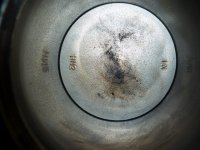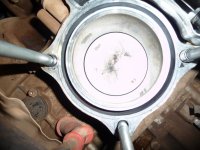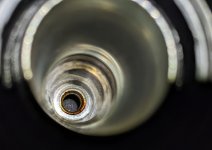Hi. Are there any additives that would be good choices for aggressively attacking carbon buildup? I have some buildup on the piston crown visible through the plug wells and I imagine the valves probably don't look much better. It's tough to tell how thick it is from a top down view but on some pistons it coats most of the top.
The engine is a ford gen1 coyote v8 with a tvs supercharger and 23K on it. I've already contacted the vendor and they didn't seem real concerned about the carbon buildup but I would still like to try and get out ahead of this. The car is never on the highway and is just driven around town with some of those trips being somewhat short (less than 10 miles).
Thanks
The engine is a ford gen1 coyote v8 with a tvs supercharger and 23K on it. I've already contacted the vendor and they didn't seem real concerned about the carbon buildup but I would still like to try and get out ahead of this. The car is never on the highway and is just driven around town with some of those trips being somewhat short (less than 10 miles).
Thanks



